In sub-Saharan Africa, smallholder farmers are the backbone of the fight against hunger and poverty. Without them, societies would crumble. Yet, market systems work against them.
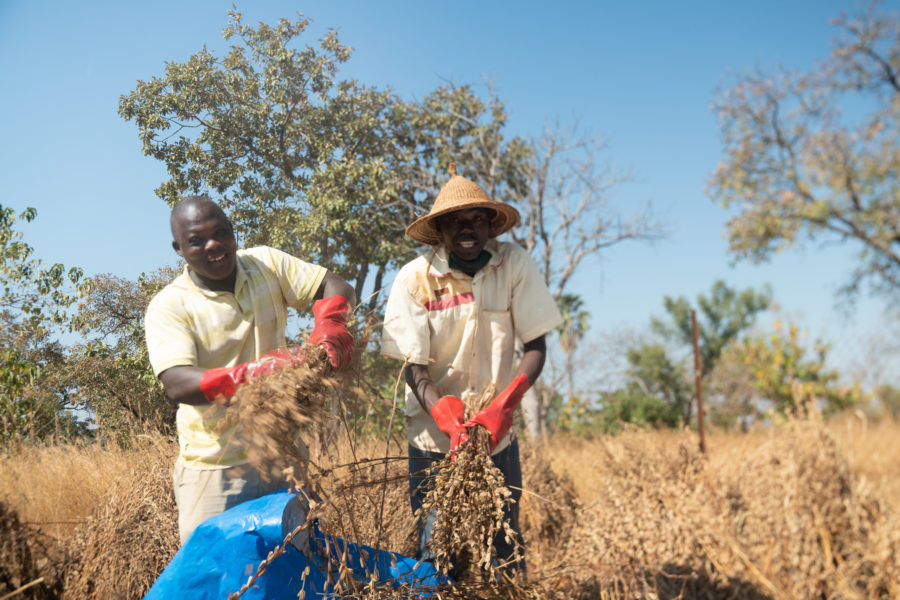
They push them into poverty. Over five years, ICCO (part of Cordaid) and the Mastercard Foundation worked hard to make markets work better for more than 200,000 farmers and their families. In this interview, Maurice Koppes, head of the STARS programme, explains how this was achieved and who was involved.
Strengthening African Rural Smallholders (STARS) is a recently concluded five-year programme (2017-2021) of ICCO (part of Cordaid) in partnership with Mastercard Foundation and ICCO Terrafina. In four countries—Senegal, Burkina Faso, Rwanda, and Ethiopia—it improved access to finance and markets for over 200,000 smallholder farmers.
Working with farmers and their cooperatives, microfinance institutions (MFIs), government representatives, commercial banks, input suppliers, and processors, STARS changed the way markets and value chains work. The core focus of all its activities and efforts is to help smallholder farmers benefit more from the economies they are part of and realise their full potential.
STARS programme manager Maurice Koppes has a long track record in microfinance, SME banking, and access to finance. Before his work for STARS, during which Addis Ababa was his base, he lived and worked in Kosovo, the Philippines, Ghana, and Ethiopia.
Before we discuss STARS, can you explain the importance of smallholder farmers in sub-Saharan Africa and the roles they play?
‘They represent up to 80% of the population of most African countries and feed most of the mouths. Despite the ongoing urbanisation and migration towards the cities, they will remain the majority soon.
As populations continue to grow, thanks to better health care, decreasing child mortality, and other factors, pressure on land is rising. This makes farming even more challenging than it already is and, at the same time, more important, as there are more mouths to feed.
Macroeconomically, in countries where STARS was implemented, smallholder farmers contribute substantially to the GNP. Many, if not most, of the exports consist of primary, unprocessed goods, such as crops. Microeconomically, they are the ones who keep local markets alive. Even more basically, farmers produce food and supply the markets in the world’s most food-insecure places. They are the frontline defenders of several sustainable development goals, notably SDG 2 (zero hunger).’
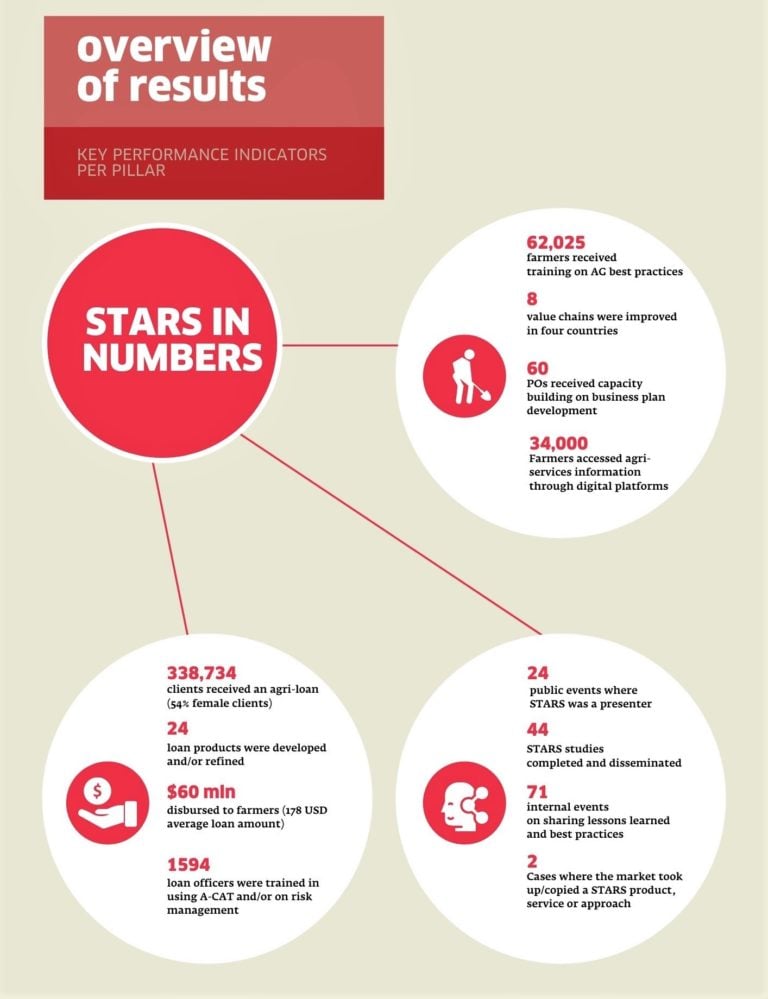
Like in Europe a few decades ago, farming in countries like Burkina Faso and Ethiopia seems to lose appeal to young generations. What are the main challenges farmers are coping with, often pushing them to quit farming and find their luck elsewhere?
‘There are many. Obviously, climate change is causing extreme weather conditions, especially around the equator. Droughts and floods are increasing, becoming more intense and unpredictable.
The lack of access to finance prevents farmers from growing their way out of poverty. Most financial institutions are not interested in investing in smallholder farmers. For them, it’s another world, a gap not worth bridging. Most loan officers cannot be pushed to venture into rural farming, let alone invest in it. Due to this lack of investment (also of big donor organisations), small farmers lose out on the chance to grow and modernise, and thus, to make farming more attractive to younger generations.’
You mention climate change. Is that something that was integrated into the design of the STARS programme?
‘It wasn’t. The setup was to focus on access to finance, market system changes, and to promote gender balance. But five years of STARS and working with thousands of farmers has given us a wealth of information and experience that is extremely valuable in addressing climate change. We are now capitalising on that by starting programmes that help farmers deal better with droughts and floods.
‘Marriage, education for your kids, urgent medical treatment, all that is impossible if you don’t have at least some savings.’
In Senegal, for example, we are working with farmer cooperatives to create shared and jointly maintained solar-powered irrigation systems. Also, in Rwanda, we are looking for ways to promote inter-cropping—growing trees in farmland areas—to counter floods. Traditionally, farming starts by cutting wood and clearing land. This approach turns it around: it starts with trees. They hold and protect the soil, nutrients, and crops during extreme rainfall.’
What are the typical barriers farmers face in equatorial Africa?
‘There’s the volatility of income and with it the insecurity. Of course, volatility is inherent to farming and the farming cycles. In good years, crops can yield a good income. However, the market system can work against the farmer even in good years. Big yields cause price drops. There can be too little in bad years to generate even a basic income.
The lack of market access and access to finance keeps farmers from dealing with insecurity and volatility and creating the financial buffers needed to get on with their lives. Marriage, education for your kids, urgent medical treatment, all that is impossible if you don’t have at least some savings.
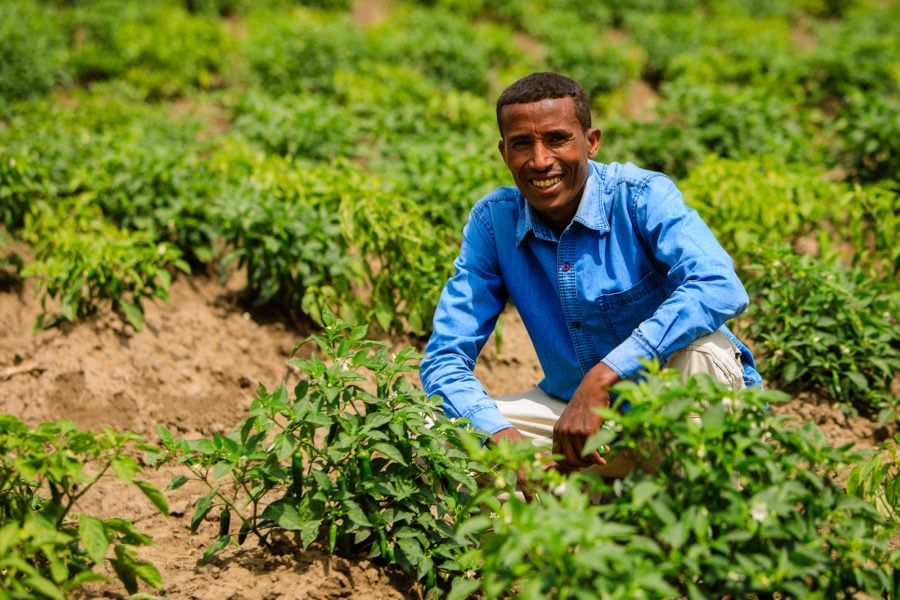
Crises are constantly looming. Climate change and the growing unpredictability and severity of rain and drought. Plant diseases. Armed conflicts push people away from their homesteads, land, and herds. Smallholder farmers and their communities live and work without a safety net.’
How did STARS support them in addressing these barriers and challenges?
‘STARS’ aim was to break three barriers. By partnering with 22 MFIs and developing innovative and tailor-made financial products for smallholder farmers, we improved access to finance for 350.000 farmers. This allowed them, amongst others, to improve their input supply and their stocks of good-quality seeds. For smallholder farmers, this is of capital importance. It gives them a head start. We gave farmer cooperatives the opportunities, through training, to improve their management and business skills. We organised best-practice training on selected crops.
‘Typically, if farmers manage to access a loan at all, they are given a standard group loan, which boils down to 100 or 200 USD per person. Not enough to plant a crop.’
Finally, STARS helped to break down the knowledge barrier. Too often, important data and knowledge sources are inaccessible to smallholder farmers. STARS teams—in the four countries STARS worked with over 1500 professionals—actively developed and disseminated data sources and learning products for smallholder farmers.
With this combination of tailor-made finance, training, and access to knowledge, over 350.000 farmers strengthened their position in eight major value chains, from malt barley to potatoes and maize.’
STARS’ approach was ‘to make markets work for the poor’. What do you mean by that?‘
‘It means we wanted to make the change as sustainable as possible. Instead of giving a fish or a fishing rod, we asked more fundamental questions. Why is this person not able to buy a fishing rod? Why can she or he not secure an income and do what she or he is good at? Is it a lack of money or a lack of knowledge? Aren’t the tools available? Why is the market not working for her or him?
Now, smallholder farmers need to access several markets. Access to working capital loans. Access to inputs, like good quality seeds and fertiliser, at the right time. The market defines how produce is sold and distributed, with government regulations, skimming and scamming middlemen, and other actors who want to earn money at the farmer’s expense. Sometimes, there’s a huge demand for a certain crop, like malt barley in Ethiopia, but farmers can’t grow the right variety at the right quality. Sometimes, they produce a good crop but can’t find anyone to sell it to, and crops go to waste.
Farmers with relatively little land and little means are kept out of the higher game in these markets. STARS supported them in their struggle to enter that game and to have a decent livelihood, just like you and me.’
Can you give some examples?
‘We developed crop-specific loan products with Microfinance Institutions. Typically, if farmers manage to access a loan at all, they are given a standard group loan, which amounts to 100 or 200 USD per person—not enough to plant a crop. STARS developed the Agricultural Credit Assessment Tool, which was used by the loan officers of the MFIs we worked with. The loan amounts and repayment conditions were crop-specific so that farmers could buy all the inputs they needed to grow a sellable crop.
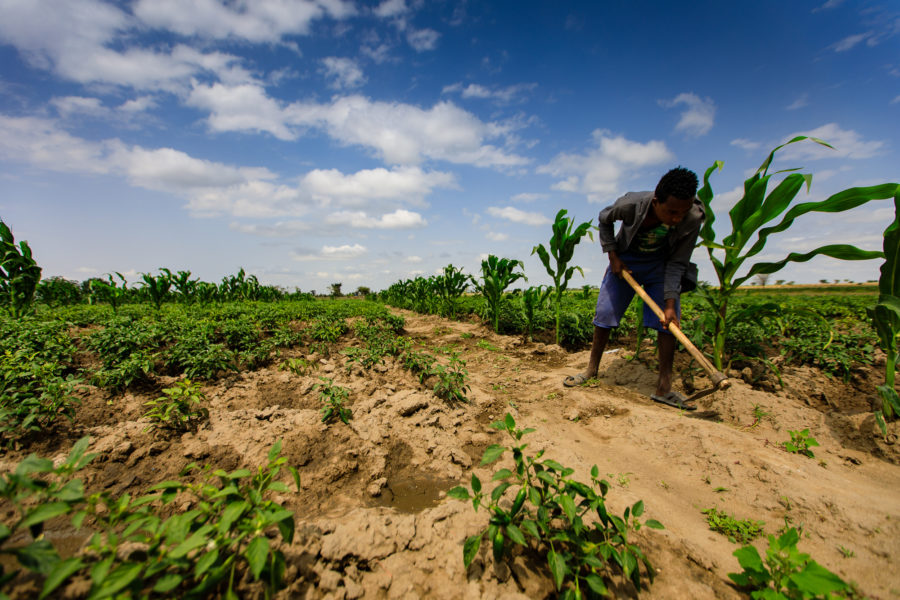
Automating the process is the only way to make personalised and tailor-made loan assessments and disbursements efficient. Compared to standardised group loans, this comes with much more data about the farms, the crops, the value chains, and even the weather conditions. All that needs to be collected, stored, analysed, and updated. In the STARS programme, hundreds of loan officers were trained and equipped to do that. Data were gathered and uploaded on mobile devices in rural outskirts and stored in the cloud in the bigger cities with internet access.
It is the first step in making this large-scale access to finance initiative more data-driven, transparent, and efficient. You want to rule out human error, like loan officers giving loans simply because person x or y is a cousin. You want more people to access loans that improve their livelihood.’
Can you give an example of a particular value chain in one of the countries?
‘Take the potato farmers in Ethiopia. Many of them stopped harvesting crops because it wasn’t worth it. Middlemen control the market and pay a ridiculously low price.
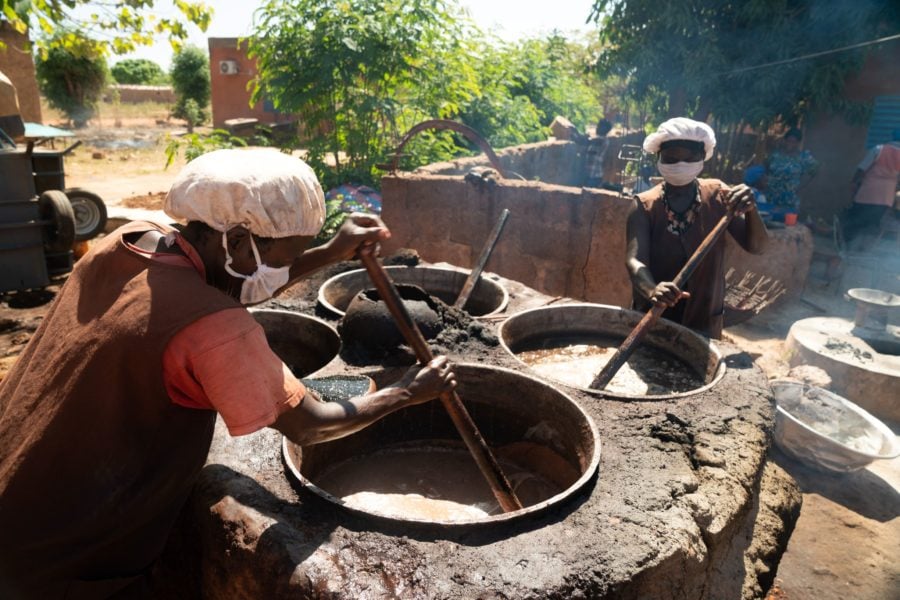
STARS teams brokered an agreement between potato farmer cooperatives and a big potato chips company in Ethiopia, Senselet. Harvests were aggregated, fair prices were agreed upon, and both the farmers and the company fared better after that. We cut out the middlemen.’
It sounds fair but also tricky. Middlemen can be very powerful.
‘Sure, sometimes they operate like the mafia. They fight back to keep a grip on their farmers and market share. But then, who said pursuing a social mission is easy? It isn’t. If you work for smallholder farmers, big commercial interests are at play. Politics and power struggles can turn against you. That can be tense, whether in the potato value chain in Ethiopia or the sesame value chain in Burkina Faso.
Smallholder farmers join forces to stand strong in that arena and organize themselves into cooperatives. The power of numbers helps them to stand their ground and use their resources more efficiently. That’s why we only worked with cooperatives. Also, paying the staff you work with decently is important. It helps to keep corruption at bay.’
STARS was implemented in 4 different countries. Different realities, presumably?
‘Of course, in terms of government regulations and the way markets work, but also in terms of how free and farmers can organize themselves. For example, the concept of rural cooperatives resounds well in Francophone Africa. In Ethiopia, cooperatives tend to be an extension of the government.
During the 5 years of STARS, between 2017 and mid-2021, and in the areas where we worked, the armed conflict was not such in the four countries that it impeded implementation. However, in Burkina Faso and Ethiopia, especially towards the end of the programme, there was more instability and conflict than in Senegal or Rwanda.
‘Especially in Rwanda, Burkina Faso, and Senegal, the gender balance improved in the decision-making structures of farmers we worked with.’
Farming, growing, and investing require some level of stability and security and a functioning legal system. The situation in Burkina and Ethiopia proved less stable, making the struggle for a decent livelihood even harder.’
You said that STARS took a gender approach when supporting smallholder farmers. Why was that, and how did you do it?
‘All over the world, women do most of the work in smallholder farming. More particularly, they perform the most labour-intensive and hardest tasks. Like threshing. While at the same carrying the triple burden of raising kids, running households, and making money on the side.
Yet, most decision-makers in farmer organisations, like cooperatives, are men. Women are kept out. The gender imbalance, and with it, the injustice and the lack of transparency and democracy is staggering. Women are overlooked equally within cooperatives and by government bodies and financial institutions.
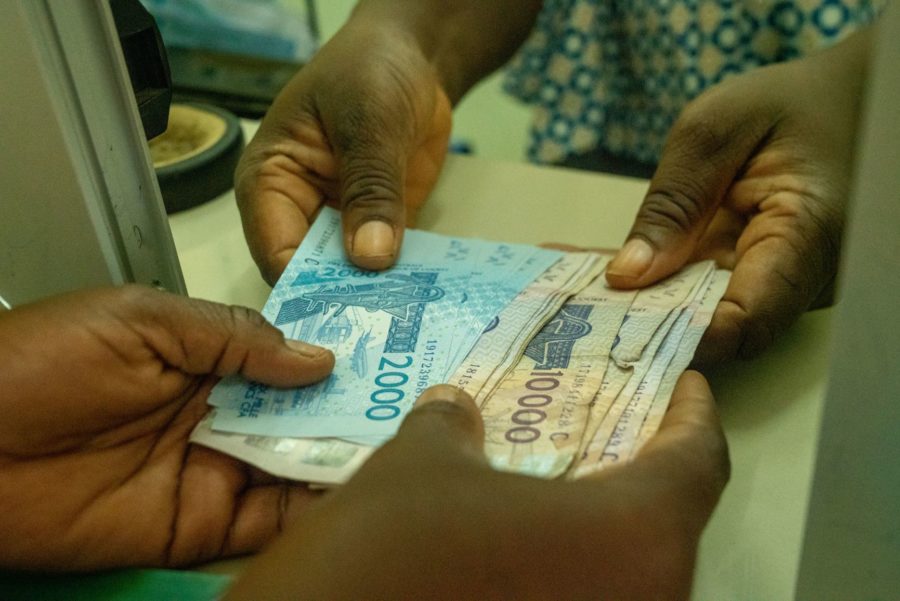
All four STARS countries rank high on the gender inequality index, making a gender approach even more important. It starts by discussing with farmers why this imbalance is not okay. In addition to injustice, it is also counterproductive and inefficient. Access to finance, land, seeds, and knowledge is even more limited to female farmers than men. As a result, women-led households produce 20 to 30% less than their male counterparts in Sub-Saharan Africa.
The gender balance improved the decision-making structures of the farmers we worked with, especially in Rwanda, Burkina Faso, and Senegal. And 54% of the farmers who received a STARS agri-loan were women, allowing them to grow their produce and business and strengthen their position.’
The STARS programme has ended. Will we continue to support smallholder farmers in Senegal, Rwanda, Burkina Faso, and Ethiopia?
‘We are exploring possibilities for future collaboration with the Mastercard Foundation in Rwanda and Senegal. With IFAD, we will further support and strengthen farmer cooperatives. In many ways, these collaborations, and possibly others, continue the STARS heritage.
To conclude, the STARS programme may have ended. But this was about sustainable, lasting change and changing the way markets work—not about giving a fish or a fishing rod. In that sense, STARS will continue in the works and doings of 350,000 farmers across equatorial Africa.’